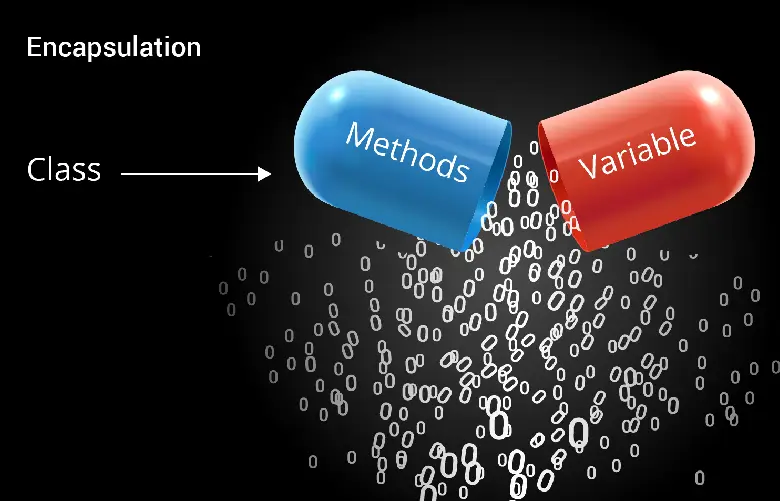Java offers developers a wide variety of powerful and effective tools for creating complex applications. Abstraction and encapsulation are two such concepts that are frequently used by developers but entertain different applications and meanings. A thorough understanding of the difference between abstraction and encapsulation is essential to write scalable and efficient codes in Java. This article will focus on exploring the critical difference between abstraction and encapsulation and how they can be used to create extensible software solutions. Are you excited? Let’s start.

POSTGRADUATE PROGRAM IN
Multi Cloud Architecture & DevOps
Master cloud architecture, DevOps practices, and automation to build scalable, resilient systems.
Importance of Abstraction and Encapsulation
Before understanding the difference between abstraction and encapsulation first look at the importance of both. Below are some of the key impotence of abstraction and encapsulation:
- Promotion of code reuse
- Beneficial in the management of complexity
- Ensures maintainability and security
- Stimulate scalability
You can also learn about cloud computing and deployment models by looking at an Introduction to cloud deployment models.
What is Abstraction?
Abstraction is a basic concept in the oeuvre of object-oriented programming that helps one to focus on an object’s essential features. It involves the process of defining a set of behaviors and characteristics representing a complex system without the inclusion of the details of implementation.
What is Encapsulation?
Encapsulation is also a fundamental concept in object-oriented programming that makes it possible to hide the details of the implementation of an object and limit access to its internal state. It involves the process of wrapping methods and data that operates on the same data into a single unit referred to as a class.
Finally, we’ve gone through the meaning of abstraction and encapsulation. Now let’s look at the major Differences between Abstraction and Encapsulation.

82.9%
of professionals don't believe their degree can help them get ahead at work.
Key Differences between Abstraction and Encapsulation
Below table explains the major Differences between Abstraction and Encapsulation.

| Abstraction | Encapsulation |
|---|---|
| Offers solutions to the problems at the design level | Offers solutions to the problems at the implementation level |
| Use of abstract classes and interfaces. | Used with the help of Acess modifiers, including private, public, or protected. |
| It helps one focus on what the job does. and how it does | It enables one to hide the data and the code into one unit to ensure the security of the data from the outside world. |
| Focuses on what is essential to perform | Focuses on how it should be done |
| Application is restricted to the design level. | Application is extended at the implementation level |
Abstraction vs Encapsulation: Work
The prominent difference between Encapsulation and Abstraction lies in the the way they are used in java, Lets understand how Abstraction vs Encapsulation works in java.
How Abstraction Works in Java
In Java, abstraction defines the character sets and behaviours representing a complex system. However, this doesn’t involve the implementation details and is achieved through using abstract classes and interfaces.
An abstract cast is typically used as a base for all other classes and can’t be instantiated. While interfaces involve a collection of abstract constants and methods defining a class contract for implementation.
Overall, abstraction proves helpful in Java as it allows you to create more manageable and straightforward code, making the process more scalable, readable and maintainable.
If you have grown some interest in cloud engineering, the best idea would be to opt for a Cloud engineering course .
How Encapsulation Works in Java
Encapsulation involves hiding the details of an object’s implementation, limiting access to its internal state. Achievement of this is done with the use of access modifiers like public, private and protected.
It works in Java by improving a code’s scalability, security and maintainability of a code. Making the modification process easier without affecting other application parts.
Example Difference Between Abstraction and Encapsulation
You can better understand the difference between Encapsulation vs Abstraction with an example. The major difference between abstraction and encapsulation in Java is that encapsulation is used for the internal wrapping of the codes on the other hand abstraction is used for making the user-end less complex which is free from unwanted codes.
Examples of Abstraction in Java
Let’s understand better the difference between Encapsulation vs Abstraction with an example.
Abstract Classes: This class can’t be instantiated and may contain one or more methods. It is a method that is not implemented but only declared.
Interfaces: This is a collection of abstract methods that doesn’t specify how a set of behaviors will be implemented but just defines them.
Generics: It allows one to create parameterized classes and methods, where the type of the parameter is not specified until the class or method is instantiated. One significant difference between Abstraction and Encapsulation in Java is how they represent data. Encapsulation wraps data and codes for necessary information and Abstraction represents only useful data.
Examples of Encapsulation in Java
Let’s understand better the difference between Encapsulation vs Abstraction with an example.

Private Access Modifiers: These restrict access to a class’s methods and fields. Only methods residing inside the class can have access.
Getter and Setter Methods: This method is used to modify and access the field of a class.
Immutable Objects: The state of these objects can’t be changed after their creation. Another key difference between Abstraction and Encapsulation in Java is the way programs are partitioned.
Abstraction vs Encapsulation: Advantages & Disadvantages
Let’s deep dive into the major difference between Abstraction vs Encapsulation in terms of Advantages & Disadvantages.
Advantages & Disadvantages of Using Abstraction in Java
Let us see the difference between abstraction and encapsulation with respect to their advantages and disadvantages in detail.
Advantages of abstraction in Java:
- Reduce the code’s complex nature.
- Proves benefits in achieving modular programming.
- Increases code’s flexibility
- Promotes the reuse of the expected functionality of the code.
Disadvantages of abstraction in java:
- In the case of too many layers of abstraction, it can lead to unwanted complexity.
- Can also result in code bloat
- It can sometimes decrease performance primarily due to the additional overhead of working with abstract interfaces or classes.
- Can make debugging complex due to the presence of additional abstraction layers.
Advantages of Using Encapsulation in Java
Encapsulation offers numerous benefits to programmers; these are:
- Enhanced code maintainability
- Better security
- Better organisation of the code
- Improved code performance
- Promotes the reuse of the code
Similarities in Abstraction vs Encapsulation
Apart from the difference between abstraction and encapsulation in java the two also shares some similarities, which are mentioned below:
- Both revolves around object-oriented programming concept.
- Both help in hiding details and enhance the quality of code
- Both promote code reusability and modular programming
- Both make use of access modifiers for controlling the data visibility
- Both prevent unauthorized access to data
Conclusion
Therefore, to sum up the major differences between abstraction and encapsulation, both abstraction and encapsulation are essential concepts in Java that are mainly used together for the creation of maintainable and robust software. The decision regarding when to use abstraction vs encapsulation depends on the goals and necessities of the software that one intends to develop and for solving a specific problem.
What are the significant differences between abstraction vs encapsulations?
What is the relationship between abstraction and inheritance in Java?
Can you use abstraction without encapsulation in Java?
When should you use abstraction versus encapsulation in Java?
Updated on June 24, 2024
